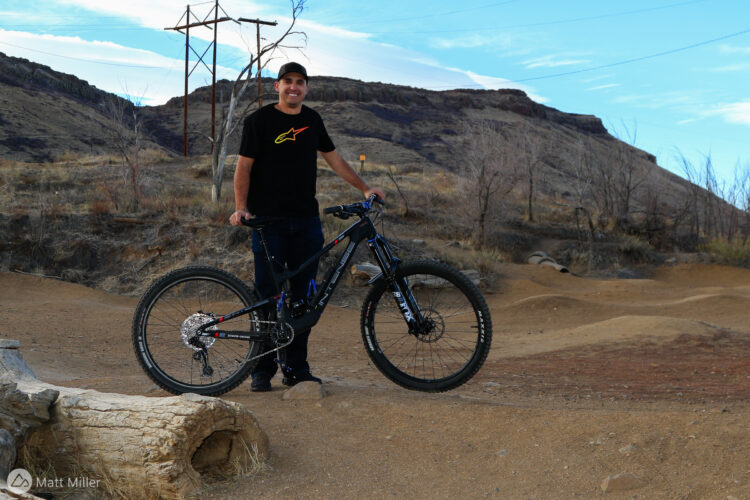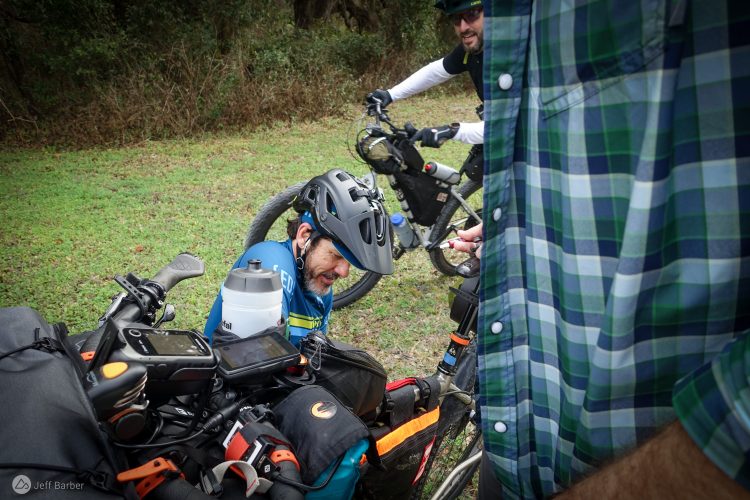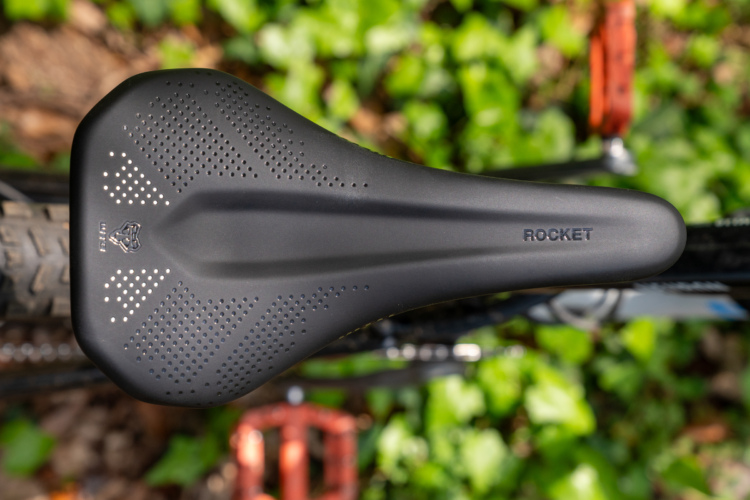
It wasn’t a childhood spent outdoors that got Sam Maddaus into thru-hiking and long-distance bikepacking. He didn’t camp or hike much as a kid. It wasn’t necessarily his time as a U.S. Navy officer either, or his lifelong thirst for fitness.
Maddaus, now about a third of the way into a 15,000 mile bike trip from the roof of Alaska to the tip of Argentina, became hooked on self-supported endurance journeys after feelings of helplessness when he lost his left leg below the knee in a traumatic motorcycle wreck.
Life as an amputee
Maddaus grew up in Minneapolis before attending the Naval Academy and commissioning as an officer. He deployed multiple times, but in 2017 when he was stationed in San Diego, he crashed his motorcycle. He had a compound fracture in his fibula and tibia, 23 broken bones in his foot and his achilles tendon was ripped from his foot.
In hindsight, he says, he should have let the leg go then, but he wasn’t ready. After 13 surgeries, infections and sepsis, and reaching a 108° fever, he realized it was time.
He left the Navy in 2020. Coming from a close, mission-driven culture like the military, he wasn’t sure what to do when his time in service ended so he headed to Guatemala to work for a nonprofit trying to establish a prosthetics clinic for amputees in the country.
“Those first few years, I couldn’t walk more than maybe a mile without being in a fair amount of pain, especially in my low back,” he said.
Maddaus could hardly walk to the store to buy water or take his dog around the block. And that feeling of ineptitude crept up on him and began to haunt.
In Guatemala he met a Dutch traveler who had hiked the Pacific Crest Trail. He recalled a rack mate in boot camp who had hiked the Appalachian Trail too–nothing but the hiker, their pack full of belongings and hundreds of miles to cover. It sounded like the perfect goal for him to regain his feeling of independence.
“Sometimes I wonder if it was the frustration and how little progress I felt like I was making that pushed me into doing the PCT, which sounds like some backwards logic, but I was just so sick of feeling handicapped all the time and constantly needing help.”
A new trail
Maddaus started the PCT in March of 2022. If you’ve seen the film Wild, starring Reese Witherspoon, or read the book by Cheryl Strayed, the beginning of his trip might sound familiar. It was discouraging, painful and slow going. His limb, which at the time used a prosthetic held by a powerful suction, suffered skin infections and was frequently rubbed raw down to the tendons underneath.
“But I just kept showing up and tried to hike everyday,” he said. Before long he was hitting 10-, 20-, and 25-mile days. After a three-day string of 20+ miles, he knew he could finish.
It was early on in the Pacific Crest Trail in the deserts of California when he came across a bikepacking video of someone’s trip from Vancouver to Argentina. That early into his 2,600 mile hike, Maddaus knew what his next journey would be: the 15,000-20,000 mile ride from Alaska to Tierra del Fuego.
After completing the PCT in the summer of 2022, Maddaus returned to Minneapolis to prepare. He worked as a server in a restaurant and a personal trainer to save up money, bought a bike, and started a GoFundMe. He hadn’t owned a bike since high school, so finding the right one took some research, but he landed on a Salsa Cutthroat, a much acclaimed bikepacking rig. In between work and researching the route, he spent more time in the gym and practicing yoga.
The piece he really needed to dial in though was his prosthetic. A suction-fitted prosthetic with a liner between his limb and the device wouldn’t cut it on this ride.
“I kind of knew that my physical ability wasn’t going to be the limit, it was going to be issues with my prosthetic or my residual limb. The issues on the PCT were always skin issues and infections, and then pain at the bottom of my limb from impact or constant friction and rubbing and tearing the skin open. Most of my concerns were along those lines and not so much whether or not I could [do it] physically or if my cardio was good enough to do it.”
For the ride he switched to a pin socket, which clicks in to his limb and removes the need for a liner between the limb and prosthetic–no more bunching and build up behind his knee. Botox injections in his limb helped reduce sweating. He also got a more durable foot, after seeing the salt and soil destroy more than one on the PCT. After that, he was ready to go.

On the road again
Maddaus started in Deadhorse, Alaska in August of 2023 and rode east toward Canada along the Alaska Range into the Yukon territory and down into British Columbia.
“Alaska and Canada was its own beast,” he said, calling it “isolated and a way more raw experience. Which, I really love. That’s kind of the scene that draws me in the most on these trips, is a good four or five day push of some real quiet.”
He traced the coast from Vancouver and through Washington and Oregon came inland along the Eastern Sierras. As he neared Mexico, he steered back to the coast and rode along the Baja Divide. It’s mostly been a mix of paved and gravel roads, but he’s finding more singletrack now along the peninsula. When we spoke, he had pulled into Todos Santos, Mexico, near the tip of Baja. After a flight to Florida for a friend’s wedding over a weekend, he’ll return to Baja, ferry to the mainland and head south to Guatemala where he plans to spend some time with the nonprofit he worked for again before continuing to Argentina.
Reciprocating inspiration
Maddaus is averaging about 100km a day he says (40-50 miles).
“I switched to kilometers in Canada,” he said. “It made me feel a little better talking about a hundred rather than fifty.”
And though he’s covering far more mileage than he did on the PCT he’ll gladly opt for burning pedals up steep climbs over the relentless thudding of backpacking.
“Biking feels way more accessible to me as an amputee.”
In the mornings, he starts with a coffee, the only reason he carries a camp stove anymore, he says, and a 15 minute deep breathing session inspired by Wim Hof. That and yoga remind him to take the day as it comes and not get wrapped up in a daily mileage goal.
Maddaus’s motivation comes and goes. Bikepacking has been much more of a solo endeavor compared to the Pacific Crest Trail, where he and other hikers leapfrogged each other and saw one another frequently on the trail.
“It’s nice at times, and then times you wish you had some other people in the suck with you.”
Frequently he conjures up an experience he had in his hospital room in San Diego before his amputation. Maddaus was arguing with the doctors so he could hang on to his leg. A volunteer at the hospital would pop in and out of his room and check on Maddaus. The volunteer– an instructor at the Navy’s explosive ordnance disposal dive school– was a picturesque example of a special operations team member: smooth, athletic, and motivated.
He had also lost his leg in a motorcycle wreck. To Maddaus, the amputation didn’t seem to hold him back.
“I think about that guy all the time even though it was such a brief interaction,” he said. “But it was a big deal to see somebody who, you know, I was excited by the things he was doing. He was still diving, parachuting, all this stuff. I think having this image of someone who was getting after it with his leg and to do so competently, that was a big deal.”
“Maybe if I can be that image for somebody else, that would be a cool feeling.”
As Maddaus pedals along from one country to the next, he posts updates on his Instagram account. Friends and followers comment on his progress and tell him how he’s an inspiration and touched their lives or the life of another amputee.
It would seem he has already become that image.





















2 Comments
Feb 7, 2024
Feb 9, 2024
As a cancer survivor, I share that experience with others on a routine basis. If that can help ease their uncertainty, and help them to move forward a little bit easier, I have contributed in a positive manner.
Hat's off to all that focus on the side of I can do... It may be a considerable challenge however, it does help others during a difficult time in their lives.
Matt, thanks for sharing Sam Maddaus' story.